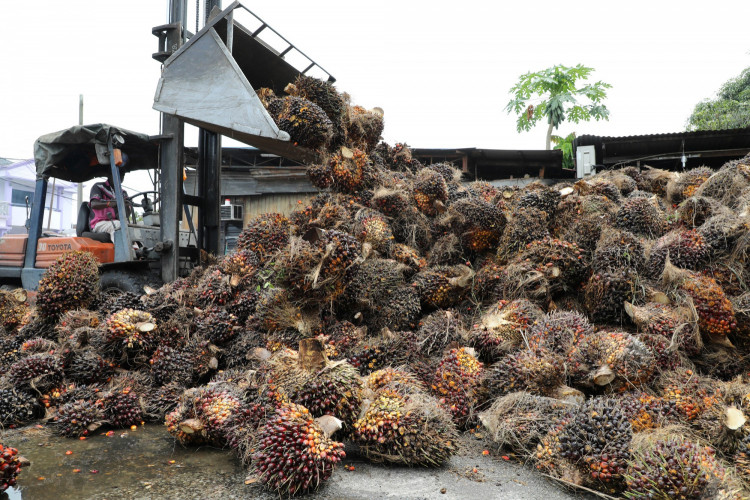Malaysia's national lockdown will trigger a labor shortage and curb production of palm oil, a Bloomberg report says.
The country is battling a third wave of Covid-19 - prompting the government to extend the first phase of its national lockdown to the end of June. The decision has again shut down nonessential industries and is expected to prolong a halt in the recruitment of foreign workers.
"The crux of the issue is the labor shortage. We have lost about 20% to 30% of our potential production because of this," Nageeb Wahab, chief executive at the Malaysian Palm Oil Association, said. "That would have gone up more this year, especially among smallholders."
Despite approaching peak cropping months, labor restrictions will hinder a large increase in yields and keep Malaysia's output around 19 million tons this year, Nageeb said, compared with 19.14 million tons in 2020. He estimates the shortfall of oil palm harvesters, which was roughly 40,000 before the epidemic, has more than doubled by now.
Revenue losses will also be higher. Planters - already losing more than 1 billion ringgit ($243 million) a month owing to labor shortages last year - may soon be losing at least 1.2 billion-1.5 billion ringgit a month as palm oil prices rise on year and labor becomes even more scarce.
In comparison, top grower Indonesia is expected to produce a record in 2021 as favorable rains improve yields, according to Astra Agro Lestari, the country's largest-listed planter. Production may increase by 2 million tons to 53.6 million tons in 2021, with output of fresh fruit bunches steadily increasing to a peak in the months of September through November.
Lower-than-expected supply in Malaysia is barring a greater collapse in benchmark palm futures, which fell around 8% Monday to settle at their lowest level in over four months. More than 70% of the plantation workforce are made up of migrant laborers, and the nation produces around 26% of the world's palm oil.






